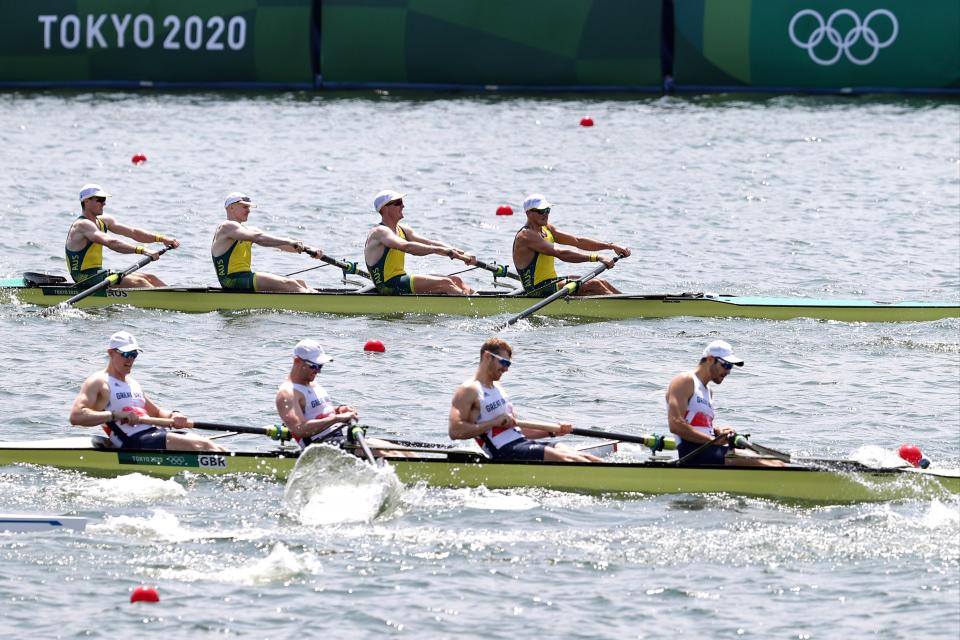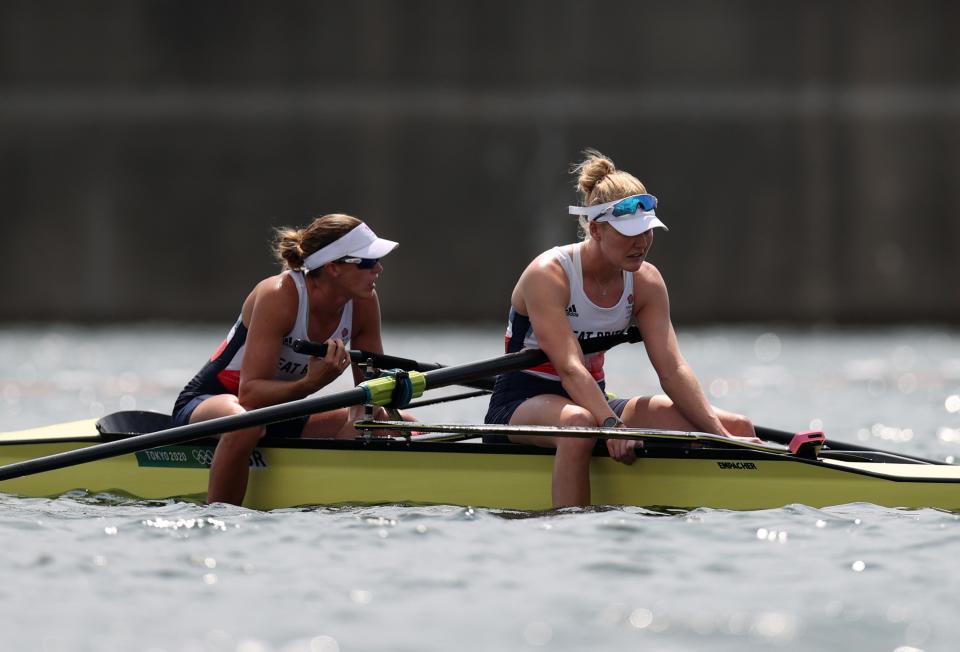Tough questions for British rowing after mammoth investment yields sorry Olympic regatta

For James Cracknell, the warning signs were there before these Olympics had even properly begun.
The two-time Olympic champion had expressed his fears while watching the men’s quadruple scull fail to qualify from their heat on the morning of the opening ceremony. “I don’t want to get drawn into thinking just because that boat’s going badly it’s a marker for the whole British team but…”.
Ironically, that boat would come through the repechage and go on to record Team GB’s best result of the regatta. That it was a silver medal tells you plenty about Britain’s worst performance on the water, not only since the advent of lottery funding in 1997, but since they left the 1972 Munich Games empty handed completely.
Five years ago in Rio, the men’s eight had capped a superb week with gold in the final race of the meeting but this morning in Tokyo they were tasked with a salvage job.
The crew of Josh Bugajski, Jacob Dawson, Tom George, Moe Sbihi, Charles Elwes, Oliver Wynne-Griffith, James Rudkin, Tom Ford and cox Henry Fieldsman came away with a fine bronze after a thrilling tussle with Germany and eventual winners New Zealand, but ultimately fell short in a last-ditch attempt to keep up rowing’s proud record of having returned from every Games since 1984 with at least one gold medal, the longest such streak in British sport.

It is that sort of record and that level of reliability that has made rowing Britain’s best-funded Olympic sport - and, of course, that level of funding that has historically delivered such success - but tough questions will now be asked.
“We got three golds and two silvers in Rio. We come away from Tokyo, after £27million of investment in British rowing, with one silver and one bronze,” Cracknell said this morning. “At a time when the national budget is under pressure from so many different areas, is that a good return on investment?”
Earlier in the day, Vicky Thornley - who had won silver alongside Katherine Grainger in 2016 - had been hoping to do her bit to help end things on a high note but became the sixth British boat to finish fourth at these Games as she missed out on a medal in the women’s single sculls by half-a-second.
Having seen so many teammates finish in supposedly the worst position in sport, Wynne-Griffith knew better than to grumble about his bronze, despite the men’s eight finishing just 0.13 seconds shy of silver.
“We’ve got a medal, it’s not the colour we wanted but there have been a lot of fourth places on the team, a lot of near misses and it’s good to be on the right side of one,” he said.
Afterwards, Grainger spoke of her pride in her former teammate Thornley and insisted Britain’s overall display was “not an absolute disaster”.
Talk of a transition period is valid, with a remarkable turnover of both coaches - the departure of Jurgen Grobler looks more costly by the day - and athletes since Rio. Just eight of this 45-strong squad were not making their Olympic debuts and it is notable that the two boats to deliver medals both featured veterans of previous Games.
There were hard-luck stories, too - none more so than in the women’s lightweight double scull of Emily Craig and Imogen Grant, who missed a medal by 0.01 seconds - and tales of inspiration, most clearly in the form of Helen Glover’s epic comeback after retirement and motherhood.
But if there is a more apt metaphor to come out of these Games than the men’s four - Britain’s five-time defending champion flagship - veering off course and off the podium, then we are yet to see it. Rowing has been a bastion of Britain’s Olympic resurgence over the past 25 years, delivering the sole gold even in its darkest hour at Atlanta ’96, and is one of those disciplines known first and foremost as an “Olympic sport”, despite the fact it is only that for one week in every four years. That rowers have carried the British flag at four of of the past eight opening ceremonies says much for its standing.

The pandemic delay, which it was hoped would help a developing British team, means Paris and the chance to right the wrongs, to prove the short-term hit of underperformance will be worth it - in terms of financial investment as much as anything, since £22.6m has already been committed for the next cycle - is just three years down the road.
But right now, flying home with so little to show for their efforts, Britain’s rowers will feel that is an awfully long time away.
Read More
Tokyo Olympics 2021: Every Team GB medal winner so far
Helen Glover proud but keen to return home after missing rowing medal

 Yahoo Finance
Yahoo Finance 